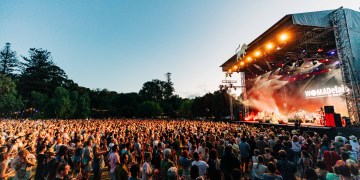In the heart of South Australia’s Mallee, a small farming town has been recognised for rewriting what rural leadership looks like – and women are front and centre.
Lameroo, 210km east of Adelaide, is home to less than 900 people. But size is no barrier for this tiny town, which has just been crowned South Australia’s 2025 Agricultural Town of the Year.
The recognition, announced at the Regional Showcase Awards at LOT.100 in the Adelaide Hills, highlights Lameroo’s strong, progressive and proud community, and its resilience in times of prolonged dry conditions.
Lameroo was selected from a record-breaking 96 unique nominations from towns across the state, beating out finalists Keith and Kimba for the coveted title – an initiative of the Department of Primary Industries and Regions (PIRSA), delivered in partnership with InDaily.

The young women putting Lameroo on the map
From running multigenerational farms to spearheading community projects, young local women like Nicole McMahon and Lou Flohr are shaping the town’s future.
And, for both of them, it’s less about breaking barriers and more about doing what needs to be done to make life better for everyone who calls Lameroo home.
Fourth-generation producer Nicole McMahon laughs that she’s “technically just back from maternity leave” but the reality is anything but slow-paced.
“I’ve just come back part-time, doing a lot of things across the board – HR, accounting, project oversight,” she says. “I grew up here and I’m really passionate about making Lameroo a place people want to live and work.”
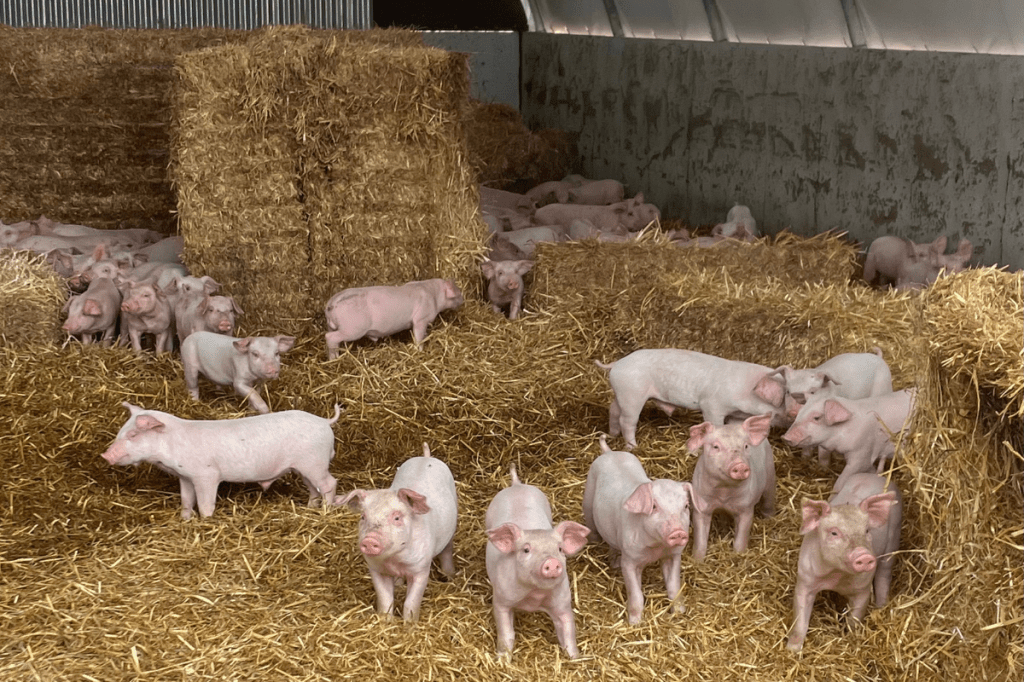
Nicole is part of the family behind McPiggery, a mixed-farming enterprise that started in the 1920s and now spans more than 18,000 hectares across the Lameroo region. The business has grown to include cropping, cattle, sheep and a 1650-sow piggery, all owned and operated by Nicole, her sisters Kim and Kate, and their parents.
“We aim to grow all our own feed and use straw from our harvest as bedding for the pigs,” she says. “Then that spent bedding goes back onto our crops as organic manure – it’s basically a closed-loop system.”
It’s a big operation, with 40 staff, a growing number of whom have moved to Lameroo from overseas.
“Many of our team are now from the Philippines and South Africa,” Nicole says. “They’ve been absolutely fantastic – not just for the business, but for the community. Most have settled here with their families now, which has been great for everyone.”
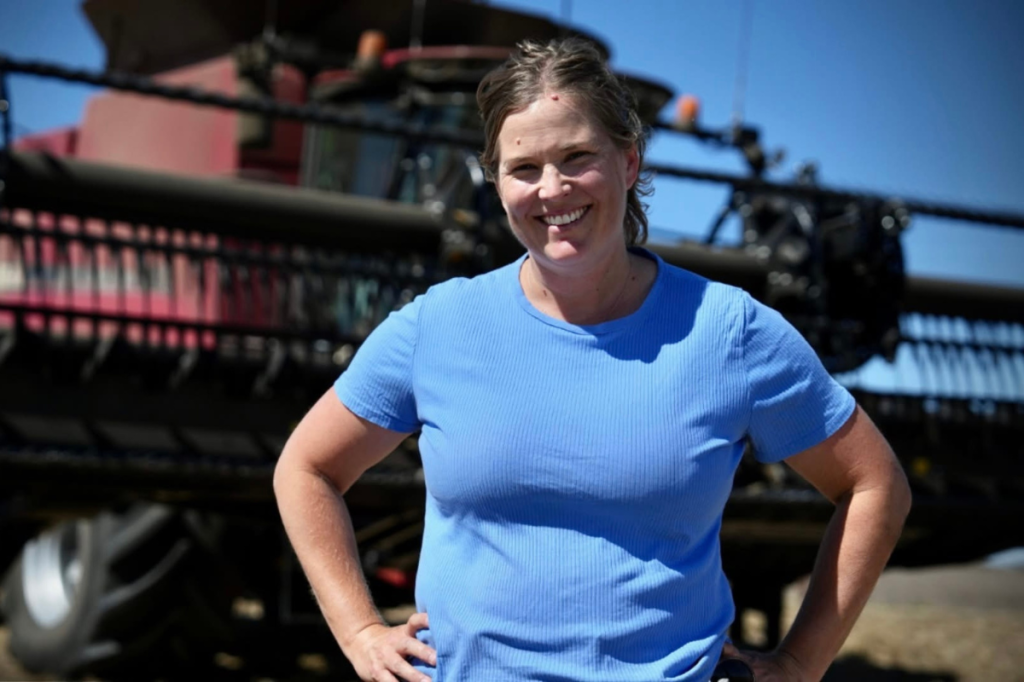
Growing people, not just produce
Just down the road, Lou Flohr is another familiar face in the Lameroo farming community.
She and her partner Andy farm alongside her parents Janet and Gary, producing high-quality grain in some of the state’s toughest growing conditions.
“We live in a low-rainfall region on a low-rainfall continent and we do so much with what we get,” Lou says. “It’s great to show all the innovation and land-care practices we do – it’s really humbling to be recognised for that.”
Lou is one of four daughters and says her family never saw gender as a barrier.
“Farming’s never been a ‘boy thing’ for us,” she says. “It’s just what we do. And it’s great to see so many women around here taking on leadership roles – it’s good for business and good for the community.”
Lou’s leadership extends beyond the farm gate. She runs Lameroo’s playgroup, which has become an unexpected lifeline for new families, including those from overseas.
“It’s a great place for new families to connect,” she says. “We get people moving here with no English, so playgroup becomes a safe space where they can practise socially and their kids can start to settle in before school.”
To support the region’s growing community of South African farming families, Lameroo Regional Community School is even giving students the chance to learn Afrikaans – making it the only school in Australia to offer the language.
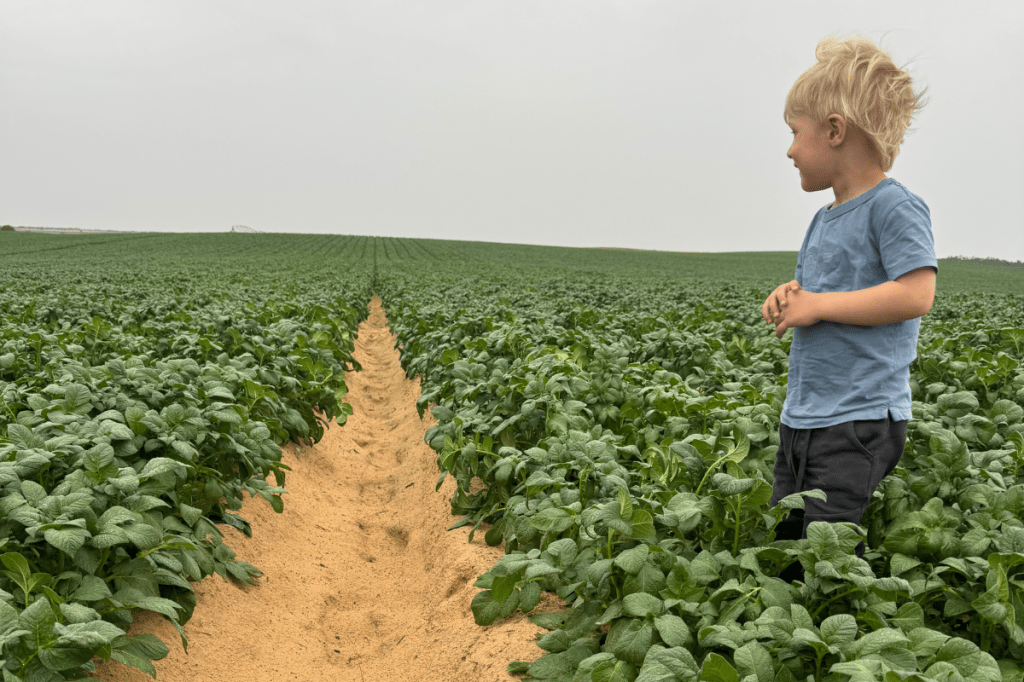
Leading from the front
Both women have found themselves at the forefront of local leadership – not through design but through necessity and passion.
Nicole chairs Lameroo Forward Incorporated, the town’s volunteer-driven progress group, which has delivered projects like the twin silo murals that now mark Lameroo’s skyline.
“That fundraising alone took a couple of years,” she says. “Most of the money came from local businesses and community donations. It just shows how much people here care.”
She took on the role shortly after having her second child. “I thought, ‘I’m on maternity leave and only working part-time, maybe I’ve got time for this,’” she laughs. “It’s definitely taken a lot of hours, but I love it. We work on projects that help Lameroo thrive, not just survive.”
Lou, meanwhile, is investing in her own leadership development, taking part in the GrainGrowers OnBoard program and serving as a trustee for the South Australian Grain Industry Trust Fund.
“I think being a very active partner in our business is good for business,” she says.
“Sometimes people prefer to talk to a woman, sometimes a man – but having that diversity helps everyone connect. It’s another point of strength.”
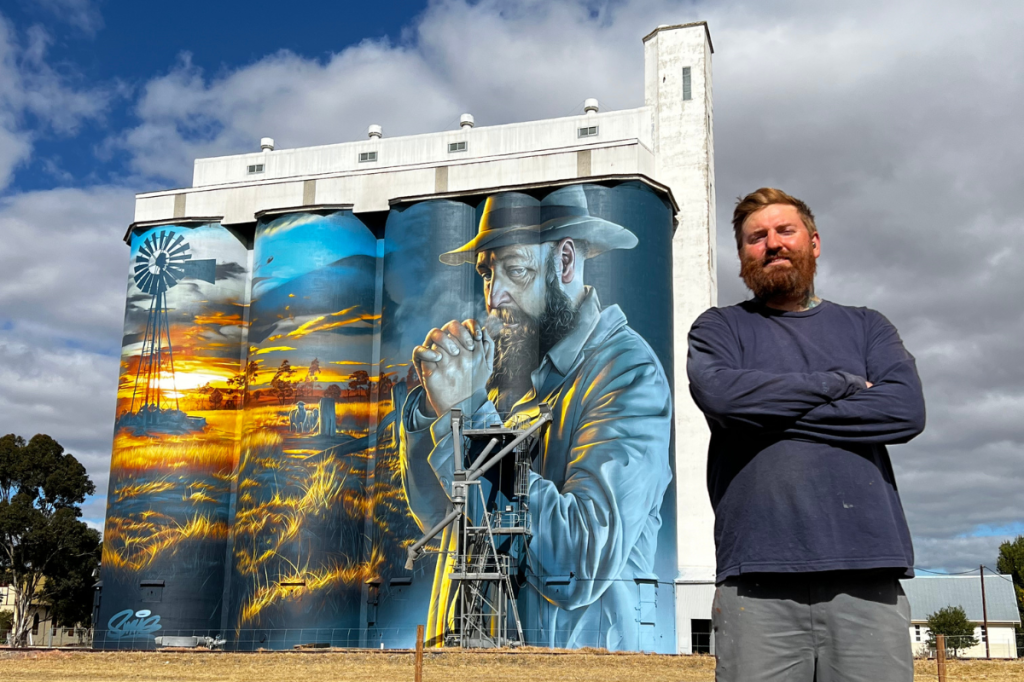
Working together
For both Lou and Nicole, Lameroo’s success – including its recent win as South Australia’s 2025 Agricultural Town of the Year – comes down to teamwork.
“When the judges came, we showed them everything – the school, the farms, the new potato packaging facility, the volunteer projects,” Nicole recalls. “We thought we’d overwhelmed them, but it’s amazing to be recognised for all the work that’s happening here.”
Lou agrees the award means a lot: “It puts us on the map and shows the quality of what’s produced here. We’re a big food bowl for SA and it’s great to have that acknowledged.”
Both women see the recognition as motivation to keep going – not just for their families but for everyone who calls Lameroo home.
“We don’t do these things for awards,” Nicole says. “We do them because they need to be done to make a life out here. But being recognised for it – that’s truly special.”

The next generation
Between farm duties, volunteer committees, and school pick-ups, life in Lameroo is busy – but neither Nicole nor Lou would trade it for anything.
“We probably complain about how many hours we spend volunteering,” Lou admits. “But I see friends in Adelaide who don’t have that community base. I feel like I have a richer, more connected life here.”
Nicole agrees that it’s the people who make it all worthwhile. “It’s a beautiful place to bring up kids,” she says. “It’s safe, supportive and full of opportunity – if you want to have a go, this is the place to do it.”
What is the Agricultural Town of the Year Award?
The South Australian Agricultural Town of the Year Award has been running since 2019 and recognises SA towns that excel in agricultural practices and are great places to live and work.
It highlights the vital role that agriculture plays in regional development.
The winning town receives a community celebration event, a town entrance sign, a trophy and extensive media exposure highlighting its achievements and contribution to SA’s agricultural sector.
Previous winners include Penola, Wudinna and Mypolonga.
To find out more about the Agricultural Town of the Year Award, click here.




